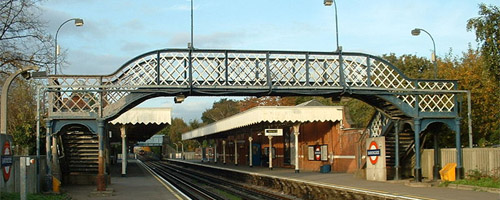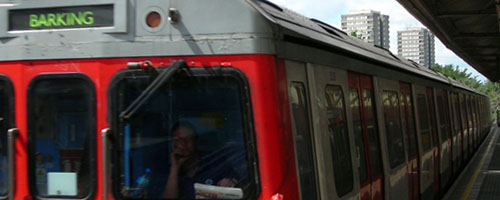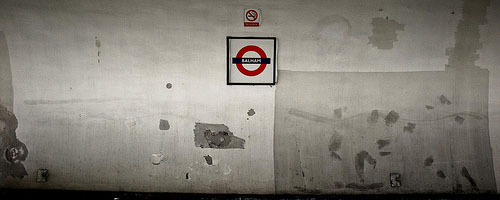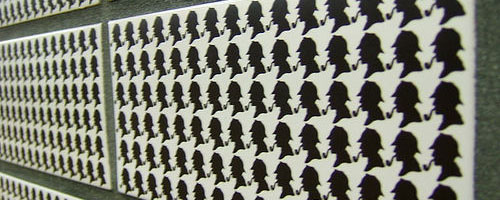
Picture by Sunil060902: Barkingside station looking north
Nobody wants to visit when you live in Barkingside. It’s a long way out for people who live in London; and a long way in for people who live anywhere else, anywhere that isn’t Barkingside. So the Barkingsiders are friendly and say hello to their neighbours; they borrow eggs to bake cakes which they throw away half-eaten, because nobody will come around to help them finish. In summer they ask each other over to rained-out barbecues. They get married and have children to populate their empty living rooms.
It’s been this way a long time, in Barkingside. The people built the station in their long, empty evenings, a hundred years ago. Some of them had been to the city centre, and they’d watched the unprecedented mass of people, sidestepping and swarming and retreating and intersecting; so they disassembled their garden sheds and when there wasn’t enough brick they tore down the corner shop as well. They made a station at the curve of a stony dead-end path that they renamed Station Road. It was red and pointy-roofed, with chimneys on the outside that corresponded to no internal fireplace, and the line they put down was long and straight and went toward the city, and the platforms had curly-edged ironwork; and the people of Barkingside stood there, behind the yellow line that they’d painted themselves, and they waited.
There were trains, eventually. Not often, and sometimes whole years passed where the platform stood empty, but as time went on the services grew more regular. And when the conductor pulled the doors open and nobody stepped out, time after time, the Barkingsiders disassembled more sheds and the older houses and built the Girls’ Village Home and filled it with 1500 pauper girls, infants to near-women. They girls left Barkingside as well, once they were old enough, and didn’t come back.
It’s a nice place, Barkingside. Pathways and trees and flowerbeds; libraries and swimming-pools and schools and churches (the services are well-attended). The pubs have attractive shuttered windows, and locals who call out startled welcomes when you go in. There are picket fences. The paintwork is bright and neat, the cemetery’s lawns are a deep clipped green. The streets are quiet.
Too quiet? Yes, of course. Zone 4 is the dead zone. Nobody visits, and the eyes of the Barkingside people are friendly and bright with hope, sad with incomprehension.
Which is to say: thanks so much for the invite, but I don’t think I’ll be able to make it up on Saturday - boring family stuff all day, you know. Really wish I could be there, though! And have a slice of cake for me, I’ll be thinking of you!




